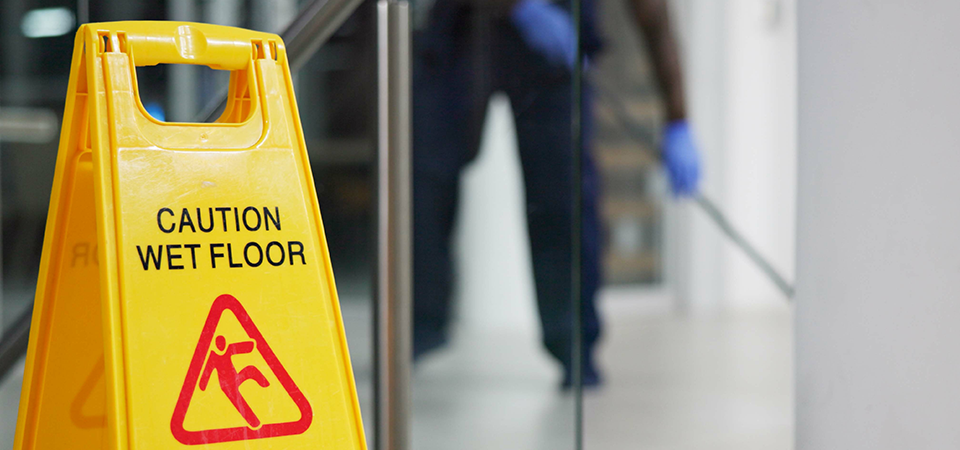Suffering an injury at work can be a life-changing experience that affects not only your physical wellbeing but also your financial security and career prospects for years, or even decades, to come.
With over 600,000 employees self-reporting non-fatal injuries due to accidents in the workplace between 2023-24, workplace incidents are more common than many people realise. If you’ve been injured due to your employer’s negligence, understanding your rights around how to claim for an accident in the workplace is crucial to securing the compensation you deserve.
Understanding Your Employer’s Duty of Care
Every employer in England and Wales has a fundamental legal obligation to protect their workforce. Under the Management of Health and Safety at Work Regulations 1999, employers’ duty of care to employees includes several key responsibilities:
- Providing adequate health and safety training.
- Conducting regular risk assessments.
- Maintaining safe equipment.
- Ensuring working environments are safe.
- Supplying appropriate personal protective equipment (PPE).
- Implementing safe working procedures.
When employers fail in any of these duties, and you suffer an injury as a result, you have the right to pursue a personal injury claim against your employer for compensation.
Common Types of Workplace Accidents
Accidents in the workplace will vary widely in frequency across different industries. However, some of the most commonly reported incidents that often lead to claims for compensation include:
- Falls From Height: Considered to be the leading cause of serious workplace injuries.
- Slips, Trips, and Falls: Often caused by unsafe surfaces or poorly maintained premises.
- Moving Machinery Accident: Likely due to inadequate safety measures in-place or improper training.
- Manual Handling Injuries: When lifting heavy objects without being provided the proper equipment.
- Vehicle-related Incidents: An issue stemming from an incident in workplace car parks or delivery areas.
- Chemical Exposure: Due to inadequate safety protocols.
- Equipment Failures: When equipment is maintained poorly, accidents can happen.
Understanding these common scenarios may help you recognise when accident claim compensation in the workplace may be applicable to your situation, and when you should consider making a personal injury claim against an employer.
What Can Happen if I Make a Claim?
One of the most pressing concerns for injured workers is job security. Many people will worry about being dismissed after accidents in the workplace. The short answer is that your employers cannot legally dismiss you solely for making a personal injury claim against them.
However, the circumstances surrounding your accident can come into play and affect this outcome:
When Dismissal May be Unlawful
If you were dismissed after an accident at work purely because you made a claim, this would likely constitute unfair dismissal and will often lead to a secondary claim.
Your employer cannot be seen to be retaliating against you for exercising your legal rights to compensation.
When Dismissal May Be Lawful
If the accident at work stems from serious misconduct or negligence on your part, your employers may have grounds for dismissal.
However, even partial fault doesn’t automatically justify dismissal, so you may still be entitled to claim for accidents in the workplace compensation under contributory negligence principles.
How Contributory Negligence Principles Work: The court assigns percentages of blame to each party. Your compensation is then reduced based on the percentage of fault attributed to you. For example:
- 50/50 Fault: You would receive 50% of the full compensation amount.
- 25% Fault: You receive 75% of the full compensation.
Long-term Sick Leave Considerations
Employers can dismiss employees on extended sick leave, but they must follow proper procedures at all times. This includes seeking external consultation, considering reasonable adjustments, and exploring alternative roles where possible.
Employment Protection and Your Rights
If you’re worried about job security after making a claim, it’s important to know that employment law provides significant protections. Scenarios leading to an accident at work and somebody being sacked often give rise to both employment tribunal and personal injury claims.
You may be entitled to pursue an employment tribunal claim for unfair dismissal if you believe your dismissal was connected to your accident or compensation claim. These claims have strict three-month time limits, so swift legal advice is essential.
How to Claim for an Accident at Work
If you’re wondering how to claim for an accident at work, the process involves several key steps:
1. Immediate Actions After Your Accident
- Report the incident immediately to your supervisor or HR department.
- Ensure the accident is recorded in your workplace’s accident log book.
- Seek medical attention promptly, even for seemingly minor injuries.
- Take photographs of the accident scene and your injuries.
- Gather contact details from any witnesses present at the time of the incident.
- Keep detailed notes about what happened.
2. Seek Legal Advice
Contact a specialist personal injury solicitor as soon as possible to discuss how to successfully claim for an accident at work. At Woodcocks Haworth and Nuttall, we offer consultations in order to assess your case and explain your options with zero obligation.
3. The Claims Process
Your solicitor will formally notify your employer of the claim, which may be via a Letter of Claim or a Claim Notification Form depending on the circumstances. The employer (or their insurers) will then investigate and typically have three months to provide a formal response, either admitting liability or setting out their defence.
4. Negotiation and Settlement
The majority of workplace injury claims are resolved through negotiation rather than court proceedings. Your solicitor will work to secure the maximum compensation possible for your specific circumstances.
How Much Compensation Can You Expect?
The question “how much compensation for injury at work” depends on various factors. The amount awarded following claims regarding an accident in the workplace typically include:
General Damages
These reflect the pain, suffering, and loss of amenity caused by your injuries. Awards are based on established guidelines and previous court decisions for similar injuries.
Special Damages
These cover your financial losses, both past and future, including:
- Lost earnings and reduced earning capacity.
- Medical treatment and rehabilitation costs.
- Care and assistance expenses.
- Travel costs for medical appointments.
- Equipment and home adaptations.
- Additional living expenses.
For serious injuries, compensation can reach hundreds of thousands, or even millions, of pounds. This is particularly true where ongoing care needs are significant.
Time Limits for Making Personal Injury Claims
Understanding how long you can claim after accidents at work is crucial. Typically, you have three years from the date of your accident to issue court proceedings for a personal injury claim. However, this deadline can be extended in certain circumstances, such as when injuries weren’t immediately apparent or in cases involving lack of mental capacity.
Don’t delay in seeking legal advice, as early action can be beneficial for securing interim payments and accessing private rehabilitation services.
For information on how long a personal injury claim for an accident in the workplace takes, read our dedicated blog today.
The Role of Insurance
All employers must carry at least £5 million in employer’s liability insurance. This means that successful personal injury claims are typically paid by insurance companies rather than directly impacting your employer’s finances. Understanding this can alleviate concerns about the financial impact on your workplace and if making a claim could come back on your colleagues.
Getting Expert Legal Support
Navigating a work injury claim process can be complex, particularly when dealing with serious injuries and their long-term consequences. At Woodcocks Haworth and Nuttall, our experienced personal injury solicitors understand the challenges you’re facing.
We offer:
- An initial consultation to assess your case.
- No-win, no-fee arrangements to eliminate financial risk.
- Specialist expertise in workplace accident claims.
- Compassionate, individualised support throughout the process.
Our team has extensive experience dealing in all types of workplace injury claims, from minor slips and falls, to catastrophic injuries requiring lifetime care. We understand that each case is unique and requires a tailored approach to ensure the best possible outcome.
Taking the Next Step
If you’ve suffered an injury at work due to your employer’s negligence, don’t let concerns about job security or complex legal processes prevent you from seeking the compensation you deserve. Your physical recovery and financial security are paramount, and the law exists to protect workers who have been injured through no fault of their own.
Remember, making a legitimate compensation claim is your legal right, not something to feel guilty about. Employers have comprehensive insurance precisely because accidents in the workplace do happen, and the system is designed to ensure injured workers receive appropriate support and accident claim compensation in the workplace.
For expert advice on your workplace accident claim, contact Katie Wright at Woodcocks Haworth and Nuttall on 01200 408 303 or email (katie.wright@whnsolicitors.co.uk). Our dedicated team is here to guide you through every step of the process and fight for the compensation you deserve.



















